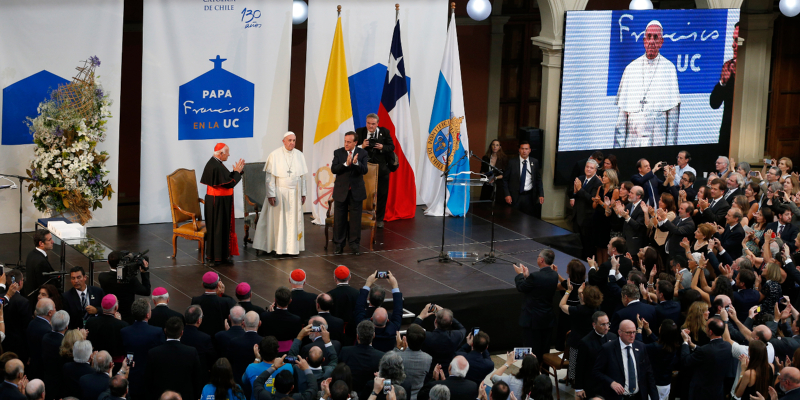Experts say that if Jorge Bergoglio had written a doctoral dissertation he would have focused on analyzing "Contrast: essay on a philosophy of the living-concrete"Romano Guardini, a study of the various ways in which unity can be achieved without uniformity, assuming the plurality of the human and the complexity of the real. The intense experience of factions and rivalries has traversed his life and continues to be his quest. In his proposal on the "culture of encounter" beats a deep conviction about the human (and supernatural) achievement that is cultivated by remaining together while being diverse.
Amidst the dust raised by the Pope's trip to Chile in January, his address to priests and seminarians on the 16th did not catch anyone's attention. However, it offers a fundamental light for this "moment of turbulence": how to develop a coherently Christian attitude in the face of a post-Christian culture.
Francis expresses it in dramatic terms: "New and diverse cultural forms are being born that do not conform to the known margins. And we have to recognize that, many times, we do not know how to insert ourselves in these new circumstances. [...] And we can fall into the temptation of secluding ourselves and isolating ourselves in order to defend our proposals, which end up being nothing more than good monologues. We can be tempted to think that everything is wrong, and instead of professing a good news, all we profess is apathy and disillusionment.". The negative pole of isolation is dissolution. Faced with the experience of one's own sin, there is the danger of giving in and falling into a "sinfulness".all the same"that "ultimately ends up watering down any compromise in the most damaging relativism.".
Isolation and dissolution are weak positions, but those who feel strong run the risk of seeing others from above, of feeling better, superheroes, that "...they are the best...".from on high, they come down to meet the mortals". Instead, the Pope points out that the Christian starts from the experience of his sin and of being forgiven by God. "The awareness of having sores frees us; yes, it frees us from becoming self-referential, from believing that we are superior.". Francis traces a path: "To know Peter as despondent in order to know Peter transfigured is the invitation to move from being a Church of desolate despondents to a Church that serves the many despondents who live beside us".. A Church that does not look down from above, but comes down and helps each one to climb a step, from where he/she is, while showing the horizon that opens before each step, which brings him/her closer to Jesus.
Professor of Sociology of Communication. Austral University (Buenos Aires)









